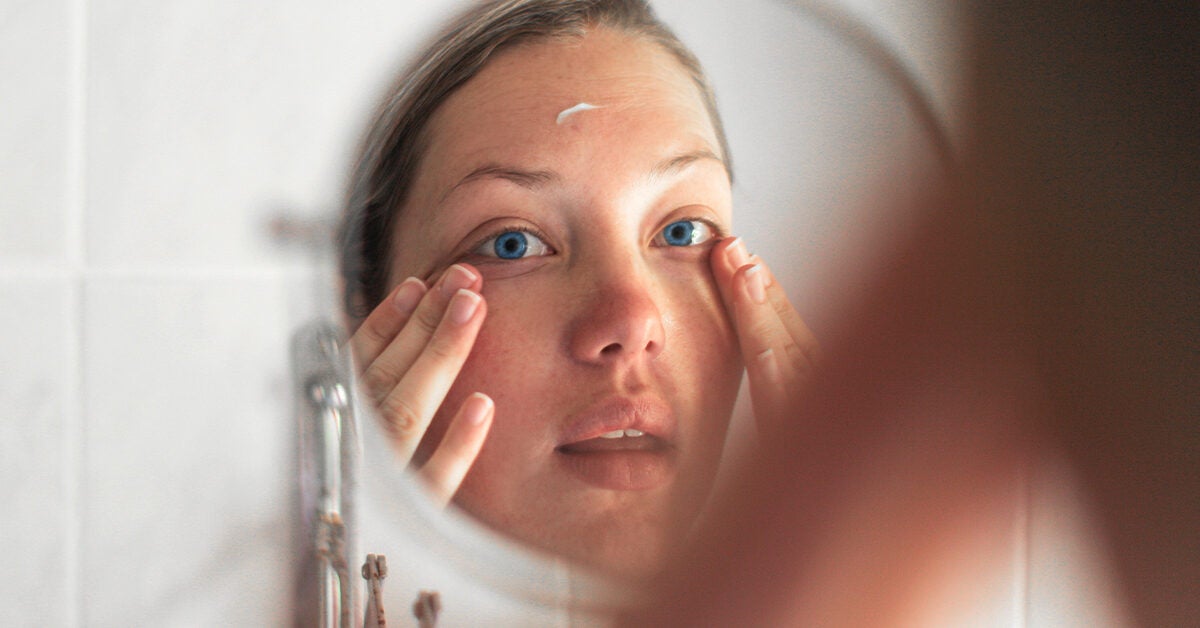Nizoral for Acne: Effectiveness, How to Use - Healthline

Nizoral is a prescription antifungal topical that's used to treat a variety of fungal infections. Its
In addition, some studies suggest that Nizoral is an effective treatment for acne that's caused by fungal overgrowth.
In this article, we take a closer look at what Nizoral is and whether it may be an effective acne treatment.
Nizoral is the brand name of the antifungal medication ketoconazole. This medication is available in various forms, such as a topical cream, shampoo, and oral medication.
It's often used to treat the following conditions:
The medication works by inhibiting an enzyme in fungi called
In addition to Nizoral, other topical antifungal agents might help treat fungal acne. Talk with a doctor to find out which one may be best suited to you.
Fungi can cause a type of acne that's medically known as pityrosporum folliculitis. It's more commonly known as fungal acne.
This condition typically causes clusters of small, itchy bumps on oily parts of the skin, such as the back, chest, shoulders, or face.
Fungal acne is caused by an overgrowth of Malassezia yeast on the skin. This yeast is present on the skin of
Unlike typical acne, which is caused by oil and bacteria buildup, fungal acne doesn't respond to traditional acne treatments. However, because Nizoral (ketoconazole) primarily targets the growth of fungal infections, it can be an effective treatment for fungal acne.
Antifungal medications are the primary treatment for fungal acne. A dermatologist may prescribe an oral antifungal medication such as fluconazole or itraconazole to help treat fungal acne. Topical antifungal creams can also help control the growth of Malassezia.
Some studies suggest that ketoconazole might be effective at treating fungal acne. Here's a look at what the latest research has found.
Several small studies suggest that a potential off-label use of ketoconazole is fungal acne treatment.
Off-label use means that a drug that has been approved by the Food and Drug Administration (FDA) to treat one condition is used for another purpose that has not been approved.
A
The 41 study participants either used the ketoconazole cream twice daily for 10 weeks or applied a placebo cream. In the ketoconazole group, 42.9 percent of the participants saw an improvement, compared with a baseline. In the placebo group, only 9.5 percent saw an improvement.
In a
In this study, the researchers found that nearly half (43.3 percent) of the participants in the ketoconazole group saw improvements, compared with 13.3 percent in the placebo group.
Although there's some evidence that ketoconazole may be effective for treating acne, it's still not approved by the FDA for this use. That's why it's important to talk with a doctor or dermatologist before using Nizoral for the treatment of fungal acne.
Fungal acne can look similar to regular acne, but there are key differences. You can tell the difference by looking at the size, location, and density, and by assessing whether your acne itches.
Here's a comparison of fungal acne and bacterial acne.
If your immune system is suppressed or you're on
If you have persistent acne that hasn't responded to traditional treatments, a doctor or dermatologist can help you determine your type of acne.
They may be able to diagnose your acne by taking a close look at it, or they might take a small skin sample to look for yeast under a microscope.
Your doctor can also help determine whether ketoconazole could be a potential treatment option for your acne.
Before using Nizoral or another topical ketoconazole cream, it's a good idea to have a doctor or dermatologist confirm that you have fungal acne. Ketoconazole isn't effective at treating acne caused by bacteria.
There are no standard treatment instructions for using ketoconazole for acne. Your doctor can give you specific instructions when they write you a prescription.
In the studies mentioned above, the participants applied the cream to the affected area twice per day for 8 to 10 weeks.
Ketoconazole is generally safe when applied to the skin.
In a
Note that whenever you apply a new product to your skin, there's a chance you might have an allergic reaction. That's why it's a good idea to test it on a small patch of skin first, and then wait 24 hours before applying it to a larger area. If you have a negative reaction, such as burning or irritation, stop using the cream.
According to the
The FDA reports that none of these side effects are associated with topical Nizoral.
You may be able to prevent or limit fungal acne by:
- changing your clothes immediately after working out or sweating
- wearing loose-fitting clothes
Besides using ketoconazole topical cream, washing your skin with with a dandruff shampoo that contains pyrithione zinc or selenium sulfide might also be an effective fungal acne treatment. Another option is to use ketoconazole in shampoo form.
Talk with a doctor about what types of treatments may be most helpful for you.
Nizoral is the brand name of the antifungal medication ketoconazole. This medication is used to treat different types of fungal conditions.
Some small studies have shown that ketoconazole may be effective at treating acne caused by fungal overgrowth. However, it's not an effective treatment for bacterial acne.
Talk with a doctor or dermatologist to find out if your acne is caused by bacteria or fungi. They can also help determine if ketoconazole may be an effective treatment for your type of acne.

Comments
Post a Comment